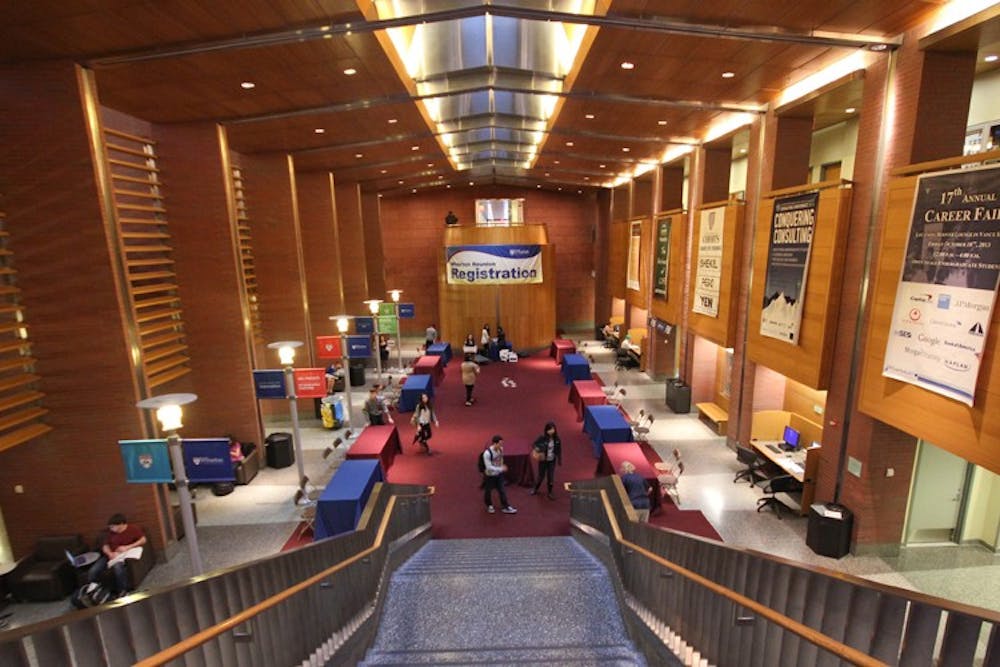
Last semester, three Penn students launched a research-based organization called Wonk Tank in conjunction with the Penn Wharton PPI.
Penn is the third best school in the Ivy Plus group — at least based on one new ranking system.
Wonk Tank, the first student-led research organization through the Penn Wharton Public Policy Initiative, gave Penn its third-place ranking based on post-graduation economic returns.
In addition to publishing several blog posts each week that revolve around economics and public policy, the group devotes each semester to an extensive research project that is published through Penn Wharton PPI. Last semester, College junior Shane Murphy, College and Wharton senior Vivek Nimgaonkar and College freshman Kailash Sundaram — who is an associate copy editor at The Daily Pennsylvanian — started Wonk Tank.
“The premise behind the Wonk Tank idea is to give students a platform to do public policy research and to be like a student think tank,” Nimgaonkar said.
The idea for Wonk Tank’s first project was sparked by the students’ interest in creating a statistical evaluation of the economic returns of various colleges. In this project, they explored the economic returns of over 1,100 colleges and universities across the United States. They then ranked them based on the median amount of disposable income that alumni had at the age of 28, approximately 10 years after entering college.
The team’s model controlled for variables such as SAT score, gender, age, ethnicity, major choice and state. After accounting for additional loan repayment and unemployment rates, the team was able to estimate the median incomes of college graduates from various schools.
They found the difference between the median income predicted by the model and the actual incomes of graduates and used this number to represent the monetary value a particular college added to a graduate’s salary.
“I like these projects because it’s a really good way for students to get involved in very legitimate research as undergraduates and in research that is student-led,” Murphy said.
Nimgaonkar said that though ranking a college usually involves many variables, the purpose of focusing on economic benefits of colleges was to give a better sense of where students can benefit most from outside funding. A downside to looking at colleges through an economic lens is the lack of standardization, because some careers have a limited earning capacity and certain schools specialize in trades that happen to be profitable right now, he said.
Managing Director for Penn Wharton PPI Andrew Coopersmith said the project tied together Penn Wharton PPI’s goals and student extracurricular opportunities.
“Is there a way to develop a student organization that contributes to the research mission of PPI while giving students a different type of club?” he asked.
Apart from its major research projects, Wonk Tank also maintains a blog about current pubic policy issues.
The Daily Pennsylvanian is an independent, student-run newspaper. Please consider making a donation to support the coverage that shapes the University. Your generosity ensures a future of strong journalism at Penn.
DonatePlease note All comments are eligible for publication in The Daily Pennsylvanian.




